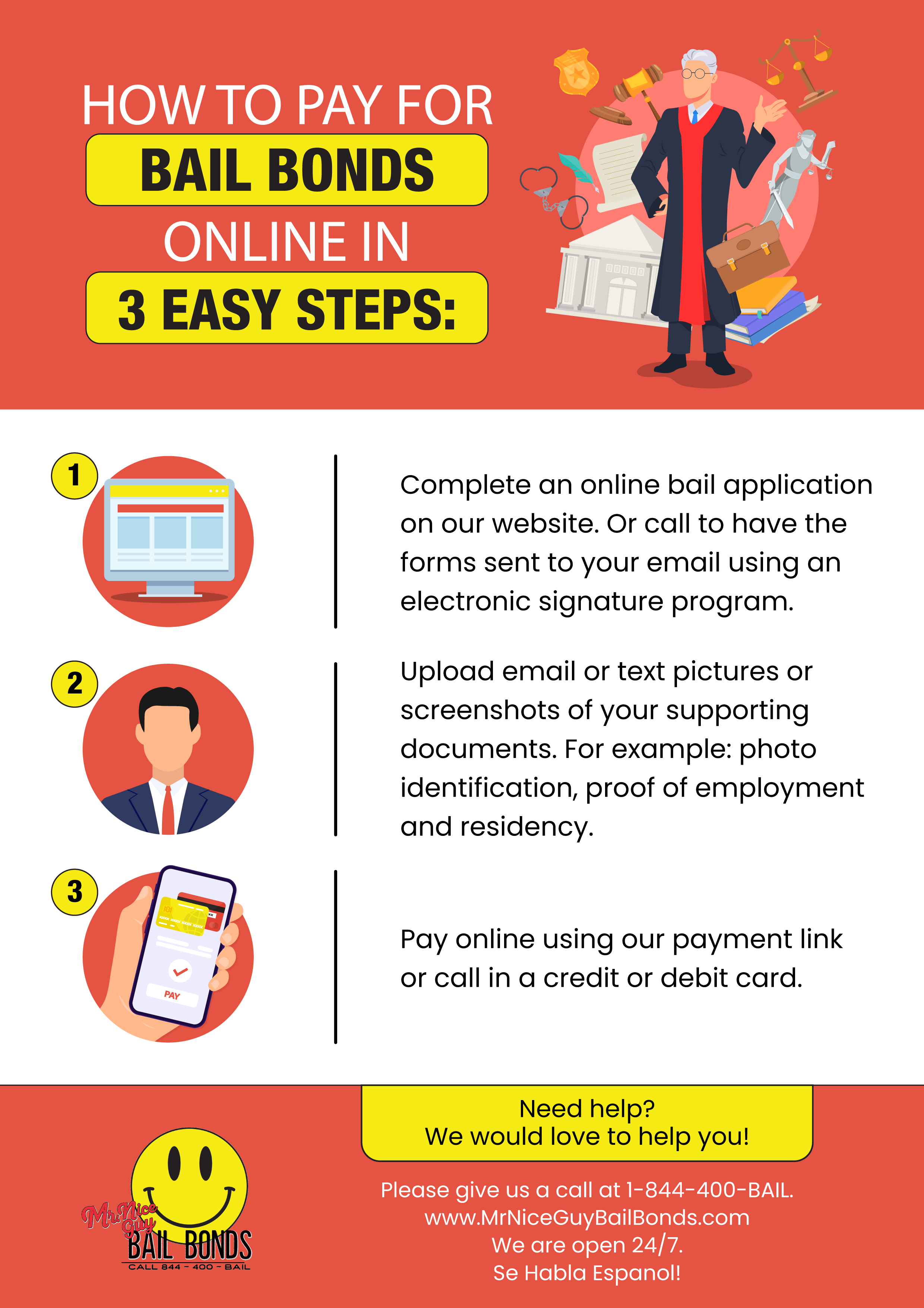Exactly How Bail Bonds Help You Protect a Swift Launch
Bail bonds serve as a crucial system for people browsing the intricacies of the criminal justice system, supplying a pathway to reclaim liberty without delay following an arrest. By involving a bail bondsman and paying a portion of the total bond quantity, accuseds can deal with both lawful commitments and individual obligations without the instant concern of complete repayment.
Recognizing Bail Bonds
Bond bonds function as a critical system in the legal system, providing individuals with a way to protect their release from wardship while awaiting trial. This monetary setup permits offenders to publish bail, which is a set quantity identified by the court, ensuring their appearance at future court dates. When an accused can not pay for the full bail quantity, they might seek support from a bail bond business, which generally bills a fee, usually around 10% of the total bail quantity.
The bail bond functions as a guarantee to the court that the offender will abide by all legal commitments. The bail bond firm is responsible for paying the full bond quantity if the accused stops working to show up in court. This threat incentivizes the business to guarantee that the defendant appears for their scheduled hearings.
It is crucial to acknowledge that bond bonds do not cover lawful fees or other expenses associated with a trial. People should be knowledgeable regarding their civil liberties and responsibilities when getting in into a bail bond arrangement.
The Duty of a Bail Bondsman
Exactly how does a bail bondsman assist in the release of accuseds from custodianship? A bail bondsman, likewise called a bond bonds representative, plays a crucial role in the bail process by supplying the economic resources required to secure a defendant's release from prison - bail bonds licking county. When an offender can not afford the full bond amount established by the court, the bondsman steps in to cover this price, normally billing a non-refundable premium, typically a percentage of the total bond
Once the costs is paid, the bondsman secures the offender's launch by signing a surety bond with the court. This bond guarantees that the offender will stand for all arranged court hearings. If the accused stops working to show up, the bondsman is in charge of paying the full bond amount to the court, which incentivizes the bail bondsman to guarantee the offender adheres to their court obligations.
Furthermore, bondsmen frequently analyze the threat linked with each instance, examining the accused's background, ties to the area, and possibility of appearing in court (bail bonds licking county). This threat assessment notifies the terms of the bond and may include security requirements, even more making certain the bail bondsman's financial investment is secured throughout the lawful procedure
Benefits of Utilizing Bail Bonds
Utilizing bail bonds provides a number of advantages for defendants dealing with legal difficulties. One of the primary benefits is the monetary relief it provides. When people are apprehended, protecting their release commonly requires a considerable amount, which may be unrestrainable for several. Bail bonds allow accuseds to pay a fraction of the overall bond quantity, usually around 10%, therefore relieving the prompt economic concern.

Moreover, dealing with a bondsman supplies access to expert support through the complex lawful landscape. Bondsmen are experienced regarding the legal system and can supply valuable guidance, making certain offenders understand their duties and civil liberties. This specialist support can be important in protecting a favorable end result in court.
Last but not least, utilizing a bail bond can help preserve an offender's public image and employment condition, which could be adversely impacted by prolonged apprehension. On the whole, the advantages of bail bonds expand beyond economic factors to consider, advertising security during a challenging time.
The Bail Process Described
Understanding the bond process additional info is necessary for anybody navigating the intricacies of the lawful system. The bail process starts after an individual is detained and brought before a judge. During the initial appearance, the judge identifies whether bond applies and sets the amount based upon the seriousness of the costs, the accused's criminal background, and trip threat.
Once bail is established, the offender has a number of alternatives for securing their launch. In this case, a co-signer or the offender pays a non-refundable cost, typically 10% of the overall bond amount, to the bail bondsman, who after that covers the complete bond.
Upon settlement, the bondsman files necessary documentation, and the accused is released from custodianship. It is vital to understand the obligations entailed, including attending all court hearings and adhering to any kind of problems set by the judge, as failing to do so can lead to a forfeiture of the bail and extra legal repercussions.
Common False Impressions Concerning Bond

One more common false impression is that bail quantities are globally set and stable. In truth, courts have discernment in determining bond quantities based upon numerous factors, consisting of the nature of the crime, the accused's criminal history, and flight risk. Furthermore, numerous think that only wealthy people can manage bond, overlooking the presence of bail bonds, which provide an even more obtainable monetary remedy.
Some likewise think that bond is a punishment, not comprehending that it functions as a system to make sure accuseds stand for their court dates while maintaining their flexibility throughout the legal procedure. Finally, several individuals are uninformed that bond is not a right; he said it can be denied under certain conditions, especially in severe criminal activities or repeat offenses. bail bonds licking county. Clearness on these misconceptions is necessary for educated choices regarding bond and the general legal process
Conclusion

When a defendant can not manage the full bond amount, they may look for help from a bail bond company, which normally bills a fee, commonly around 10% of the total bond amount.
If the defendant stops working to show up in court, the bail bond firm is accountable for paying the complete bond amount. A bail bondsman, also recognized as a bond bonds agent, plays an essential duty in the bail process by supplying the financial sources required to protect a defendant's release from jail. Bail bonds allow offenders to pay a portion of the overall bond amount, usually around 10%, thus easing the instant financial burden.
In a co-signer, the defendant or this instance pays a non-refundable fee, commonly 10% of the complete bail quantity, to the bond bondsman, who after that covers the full bail.